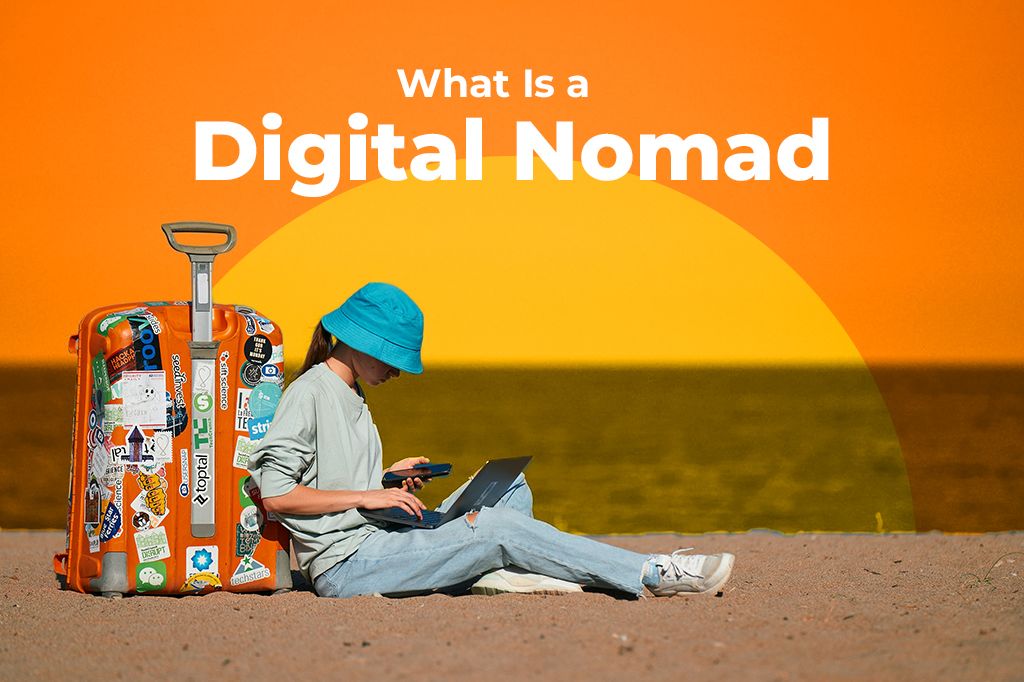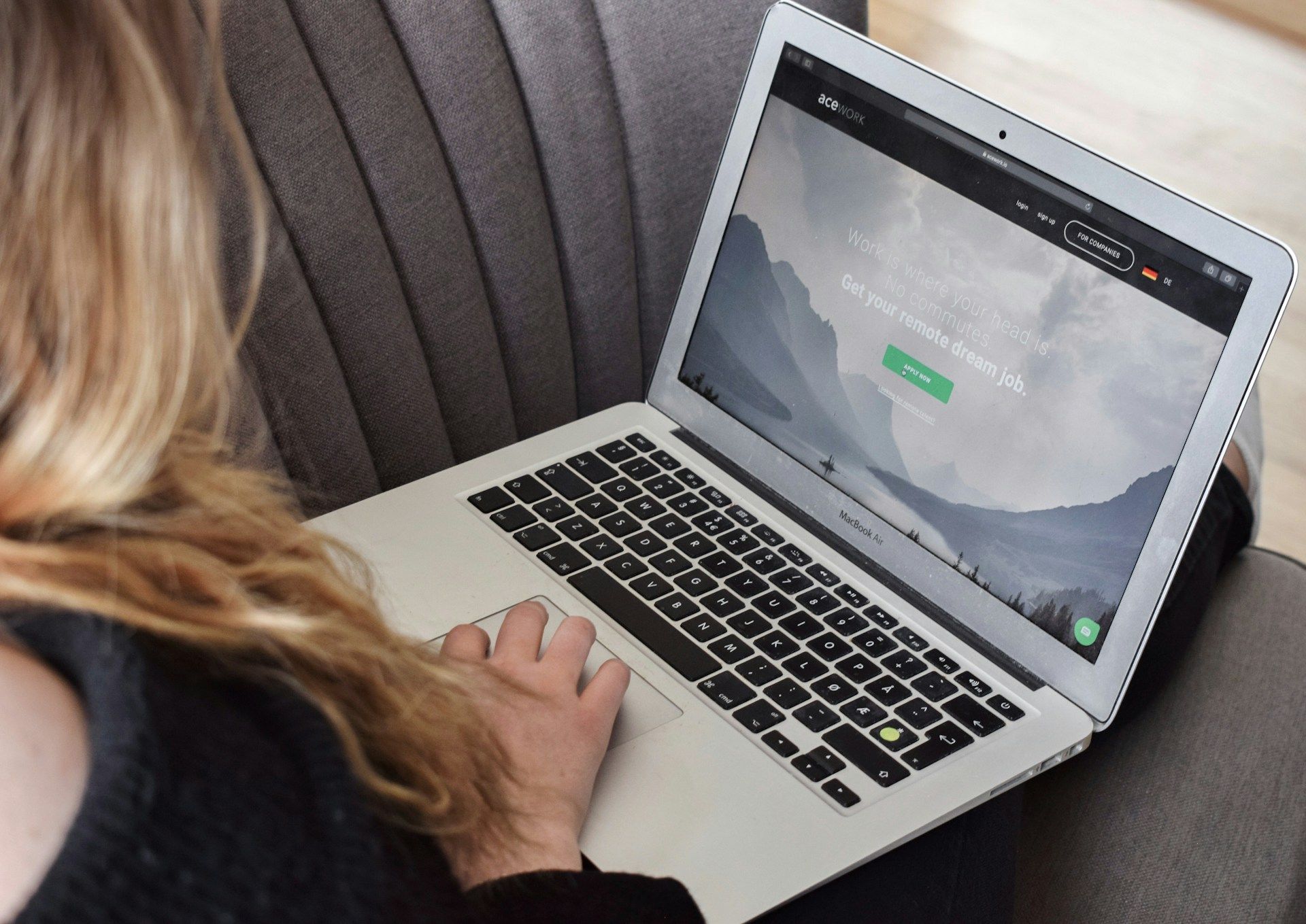Waking up in a new city, working from a sunlit café, and exploring new cultures after hours is a lifestyle that sounds almost too good to be true. But behind this freedom lies a daily reality filled with decisions, discipline, and adaptability.
Becoming a digital nomad isn’t quitting everything; it’s about reshaping it. Here’s what it really means to be a digital nomad and how to tell if the lifestyle is actually a fit for you.

Picture by Anastasiia Nelen on Unsplash
What Is a Digital Nomad?
The idea of a digital nomad has grown and changed a lot, especially since the pandemic shook up the way we work and live. At its core, a digital nomad is someone who uses the internet and digital tools to do their job from anywhere, without being tied to one fixed place. They can move from one city or country to another while working remotely. This way of working and living lets them combine travel and work in a way that’s not possible with traditional office jobs.
A couple of years ago, digital nomads were mostly freelancers or entrepreneurs hopping from one country to another with their laptops in tow. The pandemic made remote work a norm for many more people, expanding the digital nomad lifestyle beyond freelancers to include employees from all kinds of industries who can now work from anywhere.
But not everyone who works remotely is a digital nomad. In fact, there are differences between remote workers, location-independent professionals, and digital nomads:
-
Remote Workers typically work outside a traditional office but stay put in one location for a long time, like working from home or a single city.
-
Location-Independent Workers are anyone who can do their job from anywhere, whether they travel or not.
-
Digital Nomads are a special group within location-independent workers who regularly change locations, often traveling internationally, while keeping up with their jobs. As the digital nomad community has grown, it’s become clear that there’s no single way to be a nomad. People are customizing their lifestyle to fit their personal goals, career needs, and travel preferences. Here are some common types of digital nomads you might come across:
-
Slowmads prefer a more relaxed pace. They stay in one location for several months or even a year, allowing them to experience daily life in that place and build deeper connections with the local culture.
-
Workcationers blend work with short-term travel. They might spend a few weeks in a new city or country, treating it like a working vacation while still keeping up with their regular job responsibilities.
-
Entrepreneurial Nomads are business owners or freelancers who use their ability to work from anywhere to grow their ventures. They often travel to find new clients, partners, or creative inspiration.
-
Corporate Nomads are full-time employees who work remotely for a company. Thanks to flexible work policies, they’re able to travel while staying on top of meetings, deadlines, and team projects.
-
Are You Actually Built for This?
Being a digital nomad sounds amazing on paper: travel the world, work from a beach, chase sunsets instead of deadlines. But before you book that one-way ticket and start packing your laptop, it’s worth asking yourself one simple question: Am I truly built for this lifestyle?
Don’t get me wrong. This isn’t just about whether your job lets you work remotely. It’s about whether you, your habits, personality, and mindset, can handle the ups, downs, and sideways of working while living on the move. To really thrive in this lifestyle, you need:
-
Adaptability: Can you roll with the punches? Time zone changes, sketchy Wi-Fi, noisy Airbnb neighbors. These are part of the deal. If you need stability and routine to function, this lifestyle might feel more stressful than freeing.
-
Self-Motivation: No boss looking over your shoulder. No set office hours. You have to be the one who gets stuff done, even when there’s a beach, mountain, or city just outside your window.
-
Resilience: Travel plans fall through. You might get sick abroad. Loneliness creeps in. If you’re not mentally tough, these setbacks can quickly drain your energy and motivation.
-
Curiosity: A natural interest in new cultures, people, and experiences helps keep you engaged when everything around you is unfamiliar.
-
Organization: Between work deadlines, flight bookings, visa requirements, and time zones, juggling your life takes solid planning skills.
-
Comfort with Uncertainty: If the thought of last-minute changes, vague plans, or not knowing where you’ll be in a month makes you panic, this may not be the life for you.
If you prefer to follow a clear structure, consistency, and have defined boundaries between work and life, being a digital nomad might feel overwhelming. And that’s okay, it’s not a failure, just a sign that you value different things.

Photo by Jess Morgan on Unsplash
How to Transition to Nomad Life
Making the leap into digital nomad life isn’t like grabbing a backpack and booking a flight. It’s more like a smooth transition into the nomadic lifestyle without damaging your finances or relationships along the way.
Create a Smart Exit Plan (So You Don’t Burn Bridges)
Before you leave your current life behind, take time to exit responsibly, to keep doors open in case you want to return or need help later. Here’s what to do:
-
Choose the Right Time to Leave: Don’t rush. Wait until you finish big projects, renewals, or other important commitments. For example, leaving a job right before a major launch could burn bridges.
-
Give Notice to Your Boss or Clients: Be upfront. Let them know your plans and ask if there’s a way to keep working remotely. This shows respect and might even lead to future freelance work.
-
Build a Financial Cushion: Save up enough to cover at least 3 or 6 months of living expenses. This protects you if your income is slow at first or if unexpected costs come up while abroad.
-
Talk to Your People: Tell close friends and family what you’re doing. Keeping them in the loop avoids misunderstandings and helps maintain strong support systems.
-
Try a Short Test Run First: Before you fully commit, try working remotely from another city or country for a few weeks. You’ll learn what works (and what doesn’t) without the risk of going all-in too early.
Downsize Your Life
As a digital nomad, you’ll likely live out of a suitcase or backpack. That means you won’t need most of your stuff. Here’s how you could downsize to become a digital nomad:
-
Take Inventory: Write down everything you own, and ask yourself: Do I really need this? Be honest, don’t keep way more than you use.
-
Sell, Donate, or Give Away: Let go of things you don’t use often. Sell high-value items online, donate clothes to charity, or give keepsakes to friends and family.
-
Store What You Want to Keep: For things you can’t bring but don’t want to lose, like family heirlooms or winter gear, rent a small storage unit or leave them with someone you trust.
-
Go Digital: Scan important documents, store photos in the cloud, and switch from paper to digital books. This saves space and keeps you organized on the road.
-
Pack an “Essentials Kit”: This includes your laptop, chargers, portable Wi-Fi, clothes that work in different climates, and any tools you need for work.
Find Real Remote Work (And Avoid Getting Scammed)
Your digital nomad life won’t last long without income. But the internet is full of fake remote jobs and scams. So you need to know where and how to find work.
-
Use Trusted Job Boards: Sites like Remote.co, We Work Remotely, and FlexJobs focus only on real remote jobs.
-
Do Background Checks: Google the company. Look at reviews on Glassdoor. Check LinkedIn to see if it has real employees. If you can’t find anything, it’s probably a red flag.
-
Avoid Common Scams: Never pay to apply for a job. Be cautious of vague descriptions or promises like “earn $10,000/month doing almost nothing.” If it sounds too good to be true, it probably is.
-
Join Communities: Online groups like r/digitalnomad (on Reddit) or Facebook nomad groups can offer real leads and honest advice.
-
Learn Skills That Travel Well: Jobs in writing, design, coding, social media, and online marketing are in high demand and can be done from anywhere. Investing in those skills gives you more freedom and job security.
Choose a Practical First Destination (Not Just a Pretty One)
Everyone wants to start their nomadic life in Bali or Barcelona. But a beautiful place doesn’t always make life easier. Here’s what you need to ideally look for:
- Strong Internet Connection: Your work depends on a reliable internet connection. Before you go, research coworking spaces, cafés with good Wi-Fi, and mobile data options like local SIM cards or eSIMs.
Pro Tip: Avoid being stuck with no connection. Try Yoho Mobile’s free eSIM trial for instant mobile data in most countries. It’s contract-free, works quickly, and saves you from costly roaming fees and an airport SIM card. Use code YOHO12 for 12% off if you decide to buy a plan.
-
Affordable Cost of Living: Your budget is your safety net, so choose a place where rent, food, transportation, and daily expenses fit comfortably within what you can afford. Some destinations look amazing but might have high costs that drain your savings fast. Use cost comparison websites or nomad community forums to get a realistic picture of expenses and avoid financial stress that can ruin your adventure.
-
Time Zone Compatibility: If you have to work with people in certain time zones, pick a place where your working hours overlap with theirs. For example, if your clients are in Europe, living somewhere that lets you work daytime hours without staying up all night is important.
-
Visas: Every country has different rules about how long you can stay and what type of visa you need. Overstaying your visa can lead to fines, deportation, or being banned from returning. Check the visa rules carefully before you travel and plan how long you’ll stay.
-
Community Support: It helps a lot to be near other digital nomads or expats. They understand your lifestyle and can offer support, advice, and friendship. Places with active nomad communities usually have meetups, coworking spaces, and social events.
-
Health and Safety: Make sure the place has good healthcare options in case you get sick or need help. Also, research how safe the area is, check crime rates, and emergency services availability. Feeling safe and having access to healthcare will make your stay much more comfortable.
Going nomadic isn’t about running away from life. It’s about building a life that gives you freedom, flexibility, and adventure. But that freedom comes from preparation. If you plan your exit, pack smart, find real income, and land in the right place, you’ll avoid the most common mistakes new nomads make.
Start small. Stay connected. Think ahead. And remember: you’re not giving up your old life, you’re evolving it.
Making Money While You Move
With the rise of remote work and digital technology, many people now support themselves while exploring new places. The key is to find types of jobs you can do from anywhere with a laptop and an internet connection. Let’s break down some ideas that naturally fit the lifestyle of a digital nomad:
-
Freelance Writing: Writing is one of the simplest ways to earn money remotely. Whether you’re creating blog posts, articles, marketing copy, or product descriptions, businesses all over the world need written content. Writers typically find clients on platforms like Upwork or Fiverr or by directly contacting companies. You get paid either per article or by the hour, and you can work whenever you want, from anywhere.
-
Web Development & Programming: If you have coding skills, this is a highly valuable career that allows you to build websites, apps, or software remotely. Companies hire developers for both short-term projects and ongoing work. Because it’s a technical skill in demand everywhere, programmers often command good pay and flexible schedules. All you need is a good internet connection and your computer.
-
Digital Marketing: Helping businesses promote themselves online is another remote-friendly job. Digital marketers manage social media accounts, run email campaigns, create advertisements, and analyze customer data, all of which can be done online. This work involves strategy and creativity, and clients often want regular updates and reports, but you can work from anywhere.
-
Graphic Design: Creating visuals like logos, social media posts, or website graphics is a creative job you can do wherever you have design software. Freelance designers work with brands to develop their look and feel, producing the images and layouts they need for marketing or websites.
-
Virtual Assistance: Virtual assistants (VAs) provide administrative support to businesses or entrepreneurs. This can include managing emails, scheduling meetings, handling customer inquiries, or organizing projects. VAs are highly sought after because they help busy people stay organized, and the work can be done remotely with a phone and computer.
-
Consulting and Coaching: Sharing your expertise one-on-one or with groups allows you to charge higher rates. For example, if you’re a marketing expert, you can coach businesses on improving their strategy.
-
Content Creation: Starting a blog, YouTube channel, or podcast can eventually bring income through ads, sponsorships, or affiliate marketing (promoting products for commissions). This takes time and consistent effort to build an audience.
-
Dropshipping and E-commerce: This involves setting up online stores where you sell products without handling inventory yourself. While it sounds easy, it requires upfront work like creating the store, finding reliable suppliers, and marketing your products. Plus, you still need to handle customer service and ongoing store management. It’s not truly “set it and forget it.”
-
Affiliate Marketing: This means promoting other companies’ products and earning a commission on sales made through your referral links. To make significant money, you need to build a trustworthy and engaged audience, whether through a blog, social media, or email list. That takes time, consistency, and effort.
-
Online Courses and Digital Products: Creating these requires a big time investment upfront to produce high-quality, valuable content. Once made, they can generate income over time, but you’ll likely still need to update them and promote them regularly.
Choosing the right kind of work that fits your lifestyle is the foundation for making money while you move. With the right approach, you can enjoy financial freedom and adventure at the same time. Ready to turn your travel dreams into a sustainable income?
Final Thought: Is It Worth It?
Deciding to live as a digital nomad is a big choice that comes with both exciting perks and challenges. On the plus side, this lifestyle gives you the freedom to explore new cultures, meet diverse people, and break away from the typical 9-to-5 office routine.
But it’s not all adventure and flexibility. As a digital nomad, you’ll certainly deal with practical matters like visas, taxes, health insurance, and making sure your income stays steady no matter where you are. It takes careful planning and discipline to keep everything under control. Fortunately, a few tools are making that a little easier these days, like Yoho Mobile’s free eSIM trial, which can offer a simple, no-risk way to stay online from day one.
At the end of the day, the digital nomad lifestyle isn’t a guaranteed recipe for happiness. Whether it’s right for you depends on your goals, work habits, and how comfortable you are with uncertainty. Some will thrive on the flexibility and experiences it offers, while others might prefer the comfort of a more stable routine.

